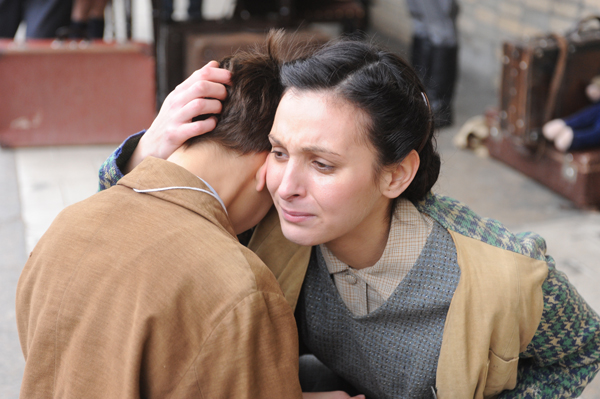
by W. H. Auden

Say
this city has ten million souls,
Some are living in mansions, some
are living in holes:
Yet there's no place for us, my dear, yet
there's no place for us.
Once we had a country and we thought
it fair,
Look in the atlas and you'll find it there:
We cannot
go there now, my dear, we cannot go there now.
In the village
churchyard there grows an old yew,
Every spring it blossoms
anew:
Old passports can't do that, my dear, old passports can't do
that.
The consul banged the table and said,
"If you've
got no passport you're officially dead":
But we are still
alive, my dear, but we are still alive.
Went to a committee;
they offered me a chair;
Asked me politely to return next
year:
But where shall we go to-day, my dear, but where shall we go
to-day?
Came to a public meeting; the speaker got up and
said;
"If we let them in, they will steal our daily
bread":
He was talking of you and me, my dear, he was talking
of you and me.
Thought I heard the thunder rumbling in the
sky;
It was Hitler over Europe, saying, "They must die":
O
we were in his mind, my dear, O we were in his mind.
Saw a
poodle in a jacket fastened with a pin,
Saw a door opened and a
cat let in:
But they weren't German Jews, my dear, but they
weren't German Jews.
Went down the harbour and stood upon the
quay,
Saw the fish swimming as if they were free:
Only ten feet
away, my dear, only ten feet away.
Walked through a wood, saw
the birds in the trees;
They had no politicians and sang at their
ease:
They weren't the human race, my dear, they weren't the human
race.
Dreamed I saw a building with a thousand floors,
A
thousand windows and a thousand doors:
Not one of them was ours,
my dear, not one of them was ours.
Stood on a great plain in
the falling snow;
Ten thousand soldiers marched to and
fro:
Looking for you and me, my dear, looking for you and me.
Wystan Hugh Auden 21 February 1907 – 29 September 1973), who published as W. H. Auden, was an Anglo-American poet, born in England, later an American citizen, regarded by many as one of the greatest writers of the 20th century. His work is noted for its stylistic and technical achievements, its engagement with moral and political issues, and its variety of tone, form and content. The central themes of his poetry are love, politics and citizenship, religion and morals, and the relationship between unique human beings and the anonymous, impersonal world of nature.
Send us your comments about this poem. Subject: Refugee Blues
Home